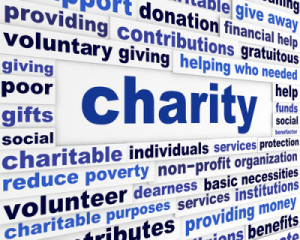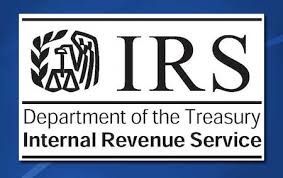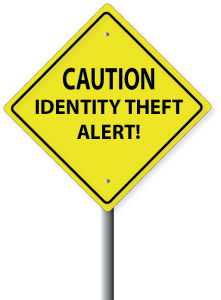 IRS repeats warning to taxpayers : We don’t call you. It’s a scam!
IRS repeats warning to taxpayers : We don’t call you. It’s a scam!
Back in April we published their warning, and it seems it is getting worse. We just received this bulletin.
WASHINGTON — IR-2014-81- August 13, 2014
The Internal Revenue Service and the Treasury Inspector General for Tax Administration continue to hear from taxpayers who have received unsolicited calls from individuals demanding payment while fraudulently claiming to be from the IRS.
Based on the 90,000 complaints that TIGTA has received through its telephone hotline, to date, TIGTA has identified approximately 1,100 victims who have lost an estimated $5 million from these scams.
“There are clear warning signs about these scams, which continue at high levels throughout the nation,” said IRS Commissioner John Koskinen. “Taxpayers should remember their first contact with the IRS will not be a call from out of the blue, but through official correspondence sent through the mail. A big red flag for these scams are angry, threatening calls from people who say they are from the IRS and urging immediate payment. This is not how we operate. People should hang up immediately and contact TIGTA or the IRS.”
Additionally, it is important for taxpayers to know that the IRS:
-
Never asks for credit card, debit card or prepaid card information over the telephone.
-
Never insists that taxpayers use a specific payment method to pay tax obligations
-
Never requests immediate payment over the telephone and will not take enforcement action immediately following a phone conversation. Taxpayers usually receive prior notification of IRS enforcement action involving IRS tax liens or levies.
Potential phone scam victims may be told that they owe money that must be paid immediately to the IRS or they are entitled to big refunds. When unsuccessful the first time, sometimes phone scammers call back trying a new strategy.
Other characteristics of these scams include:
- Scammers use fake names and IRS badge numbers. They generally use common names and surnames to identify themselves.
- Scammers may be able to recite the last four digits of a victim’s Social Security number.
- Scammers spoof the IRS toll-free number on caller ID to make it appear that it’s the IRS calling.
- Scammers sometimes send bogus IRS emails to some victims to support their bogus calls.
- Victims hear background noise of other calls being conducted to mimic a call site.
- After threatening victims with jail time or driver’s license revocation, scammers hang up and others soon call back pretending to be from the local police or DMV, and the caller ID supports their claim.
If you get a phone call from someone claiming to be from the IRS, here’s what you should do:
- If you know you owe taxes or you think you might owe taxes, call the IRS at 1.800.829.1040. The IRS employees at that line can help you with a payment issue, if there really is such an issue.
- If you know you don’t owe taxes or have no reason to think that you owe any taxes (for example, you’ve never received a bill or the caller made some bogus threats as described above), then call and report the incident to TIGTA at 1.800.366.4484.
- If you’ve been targeted by this scam, you should also contact the Federal Trade Commission and use their “FTC Complaint Assistant” at FTC.gov. Please add “IRS Telephone Scam” to the comments of your complaint.
Taxpayers should be aware that there are other unrelated scams (such as a lottery sweepstakes) and solicitations (such as debt relief) that fraudulently claim to be from the IRS.
The IRS encourages taxpayers to be vigilant against phone and email scams that use the IRS as a lure. The IRS does not initiate contact with taxpayers by email to request personal or financial information. This includes any type of electronic communication, such as text messages and social media channels. The IRS also does not ask for PINs, passwords or similar confidential access information for credit card, bank or other financial accounts. Recipients should not open any attachments or click on any links contained in the message. Instead, forward the e-mail to phishing@irs.gov.
For more information or to report a scam, go to www.irs.gov and type “scam” in the search box.
More information on how to report phishing scams involving the IRS is available on the genuine IRS website, IRS.gov.
You can reblog the IRS tax scam alert via Tumblr.
 HOW TO IDENTIFY PHISHING AND SCAMS BEFORE THE DAMAGE IS DONE.
HOW TO IDENTIFY PHISHING AND SCAMS BEFORE THE DAMAGE IS DONE. 

 IRS repeats warning to taxpayers : We don’t call you. It’s a scam!
IRS repeats warning to taxpayers : We don’t call you. It’s a scam! Identity theft remains a top priority for the Internal Revenue Service in 2014
Identity theft remains a top priority for the Internal Revenue Service in 2014 Stopping refund fraud related to identity theft is a top priority for the tax agency. The IRS is focused on preventing, detecting and resolving identity theft cases as soon as possible.
Stopping refund fraud related to identity theft is a top priority for the tax agency. The IRS is focused on preventing, detecting and resolving identity theft cases as soon as possible.